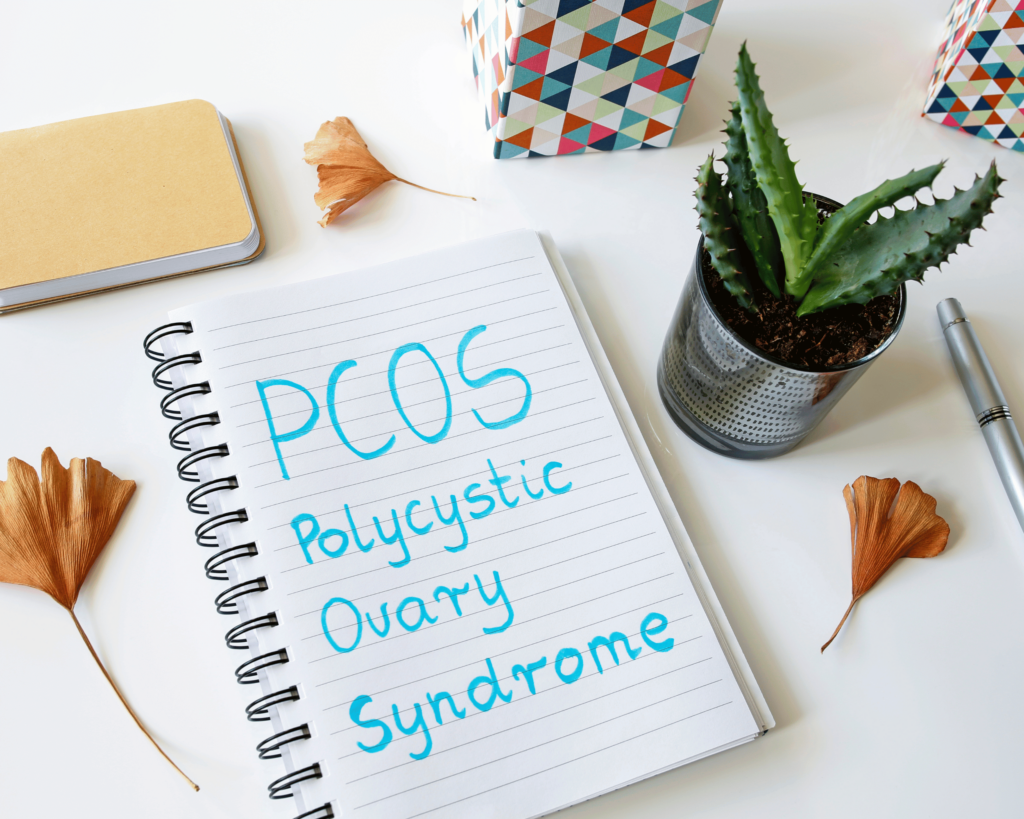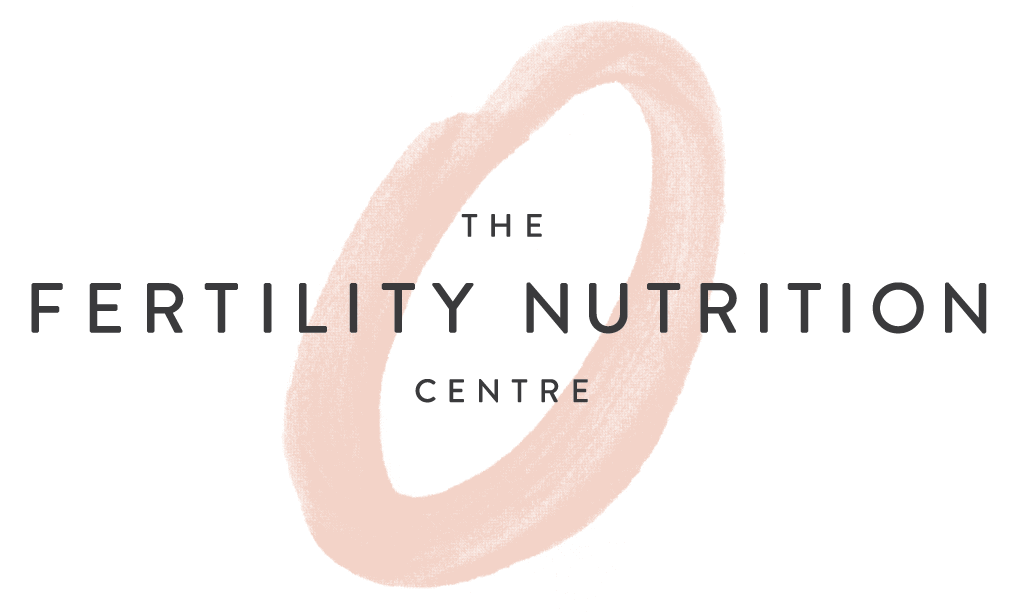
What is PCOS?
Polycystic Ovary Syndrome (PCOS) is a common health condition that affects many women. Despite its name, it does not necessarily mean there are cysts on the ovaries. Instead, the ovaries often contain many underdeveloped follicles that appear like a “bunch of grapes” on an ultrasound. PCOS also leads to an excess of male hormones like testosterone and problems regulating insulin, the hormone that controls blood sugar.
Who is most likely to get PCOS? How common is it?
PCOS affects women of childbearing age. It’s estimated that around 1 in 10 women in the UK have PCOS, although many don’t realize it until they struggle to get pregnant. It is thought to be an underdiagnosed condition.
What are the main symptoms of PCOS? Are some obvious, and some not so obvious?
The most common symptom is irregular or missed periods, due to the ovaries not ovulating properly. Other symptoms include:
- Signs of excess male hormones like acne, excess hair growth, and male-pattern baldness
- Weight gain or difficulty losing weight
- Long-term increased risk of diabetes
Not all symptoms occur in every woman. If you’re concerned you may have PCOS, see your GP or healthcare provider.
How does it happen in the first place – is it genetic? Or is it triggered by other factors?
The exact cause of PCOS is unknown.
The exact cause is unknown, but genetics do play a role. PCOS tends to run in families, so there is likely a genetic component, but there is no specific ‘PCOS gene’, more a collection of genes that increase the likelihood of PCOS occurring.
There are many lifestyle factors that can act as a driver for PCOS, some of which can also be made worse by PCOS, such as obesity and inflammation. What this means is that someone who is overweight is more likely to develop PCOS, and PCOS can, in turn, make it easier to put on weight.
How is it diagnosed?
Your healthcare provider might recommend a series of investigations, such as blood tests and an ultrasound scan, to help diagnose PCOS.
Officially, two of the following three need to be present (and other causes ruled out) in order for PCOS to be diagnosed:
- Irregular or absent periods.
- High levels of androgens – either from the symptoms outlined above or a blood test.
- Ultrasound scans showing multiple fluid-filled sacs on the ovaries.
How is it treated? Is there a cure?
There is no cure for PCOS, though it can be well managed using diet, lifestyle and medications if required.
Medicines that are commonly prescribed for PCOS include the contraceptive pill to induce regular periods, fertility drugs to help stimulate ovulation, metformin to help manage blood sugar levels, and medicines to help block the male hormones.
A diet focusing on nutrient-dense, whole foods is important for managing PCOS. Moving away from processed foods will help to lower inflammation, and some people find it helpful to eliminate wheat and dairy.
People with PCOS tend to be more sensitive to carbohydrates than others, so steering clear of sugar and other refined carbohydrates will be helpful for helping the body regulate insulin. As a general rule, beige food is best avoided. Instead, focus on good quality protein, healthy fats and an abundance of vegetables.
Lifestyle matters too. Getting enough good quality sleep, regular exercise, and managing stress levels are critical parts of the equation for reducing inflammation, insulin sensitivity, and hormone regulation.
Does having PCOS impact other areas of your health? If so, can you do anything to reduce your risk of developing other health conditions?
People with PCOS are more likely to struggle to get pregnant, and once pregnant, are more likely to suffer complications such as pre-eclampsia, gestational diabetes and miscarriage.
Having PCOS also puts people at higher risk of developing type 2 diabetes.
The important thing is to listen to your body. If you think you might have PCOS, don’t ignore it! The complications of PCOS are more likely to arise when it has been going on for a long time without being addressed.
It is also quite common for women to be diagnosed with PCOS in their teens when they have issues with their cycles, to then be put on the pill in an attempt to regulate hormones, only to then find they still have issues when they come off the pill a decade or two later wanting to get pregnant.
Medicines help to manage the symptoms of PCOS, but they don’t cure it. It is important to address the diet and lifestyle factors too.
When it comes to fertility, how does PCOS affect getting pregnant?
For women with PCOS, the ovaries become overrun with follicles that contain underdeveloped eggs, but they struggle to allow one egg to become dominant in order for it to grow and be released at ovulation. Ovulation is critical for fertility because, without it, no egg is released to be fertilised.
Because of the imbalance of hormones across the menstrual cycle, it may mean that the uterine lining doesn’t thicken enough, so even if an egg is released, the embryo struggles to implant.
Lots of women with PCOS require specialist support to help them get pregnant. Nutritional therapy is particularly helpful here.
Do you have any tips for managing acne and increased hair growth?
Unfortunately, the times when you most crave sugar or refined carbohydrates are the times when those foods will cause problems for your skin.
Whilst some medicines might help to manage these symptoms, they do not address the root cause. Being consistent with diet and lifestyle choices is a longer game, but ultimately the thing that will help the most.
Will PCOS make you gain weight? If so, how can you manage this?
PCOS can cause weight gain. The best way to manage this is by following the kind of diet and lifestyle tips outlined above. Working with a fertility nutritionist can help you figure out the right amount of carbohydrates for you and ensure you are covering all of your nutritional needs.
Some people find intermittent fasting helpful for PCOS (for example, fasting for 12-16 hours overnight and eating in an 8-12 hour window during the day), though this is not suitable for everyone and, for some people, can be a driver for hypothalamic amenorrhoea which is another cause of hormone/cycle disruption.
Are there any supplements that can help manage PCOS?
No supplements can be a replacement for a nourishing, whole foods diet.
Some supplements such as a good quality multi-vitamin, omega 3 fish oils, magnesium, and vitamin D may be helpful for ensuring the body has everything it needs to function properly, but supplements should be taken under the direction of someone who is an expert in their field as the dose, form, and combination varies from person to person.
Is it true there are different subtypes of PCOS?
Some women have the type of PCOS which is driven by insulin resistance (often linked with weight gain and ovarian dysfunction), and others tend to have PCOS driven by androgen excess (often linked with high testosterone and often high-stress levels too), though there are definitely crossovers between them and more research is needed in this field to better understand it.
While dealing with PCOS can be challenging, the condition is manageable with the right lifestyle changes and support. If you think you may have PCOS, don’t hesitate to see your doctor and get tested. There are many treatments available to address both the symptoms and root causes of PCOS. With proper management, you can still live a happy, healthy and fertile life. The key is being proactive with your health, arming yourself with knowledge, and finding the right support to guide you.
Written by Katy Bradbury.
Katy Bradbury is a registered nurse and nutritional therapist whose mission is to improve women’s chances of having healthy babies and raising happy children. Having had her own issues with fertility, she dedicates much of her online practice to helping couples get and stay pregnant, using 1:1 support and group programmes. She lives in East London with her husband, two daughters, dog and cat.

Click here to contact Katy via our practitioner directory, or click here to connect on Instagram.
What next?
Don’t forget to follow our Instagram page for more fertility nutrition tips from our team of certified practitioners.
Or click here, and head to our directory to book a free introductory chat with a team member.




